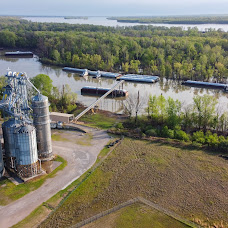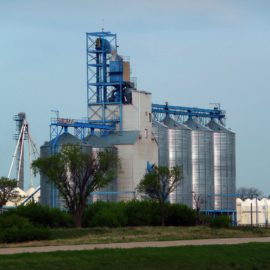
The tax breaks are illegal so fix it.
A nonprofit long opposed to a grain elevator planned for St. John the Baptist Parish says the tax breaks attached to that project are illegal, and has urged the parish’s assessor to place it on the tax rolls. The Descendants Project, formed in 2020 to advocate for the descendants of formerly enslaved residents in the area, claims the deal that the project’s developer struck in April with the Port of Louisiana to avoid about $200 million in taxes per year violates state law because it doesn’t use a tax incentive program as intended. Developer Greenfield Louisiana LLC entered into a payment-in-lieu-of-taxes agreement, or a PILOT, with the Port for the $400 million, 56-silo grain elevator it plans to build on land it purchased in Wallace. As part of that deal, the Port assumed ownership of the land, then turned around and leased that land to Greenfield. Greenfield is expected to pay for the Port for using the property over the next 30 years, instead of paying normal taxes. Such PILOTs are often used to subsidize developers whose projects are expected to bring an economic boon to the surrounding neighborhood but who can’t afford to pay taxes in full.
nola.com
That rule is fine but don’t abuse the system.
But William Most, a lawyer for The Descendants Project, said in a December letter to Assessor Lucien Gauff that Greenfield is abusing a tax loophole. Most claimed that Greenfield’s PILOT isn’t a true transfer of property, but a “simulation” of a property sale. Under Louisiana law, a simulation sale happens when a buyer owns a piece of property, but the seller has the right to take back the property and makes all executive decisions about the property. “There are these structures around the state where you reach an agreement not to pay a certain kind of tax, but you pay some other amount in lieu of taxes,” Most said. “But in our research, we have not found another PILOT program that was so transparently just a tax avoidance scheme.” Gauff, however, said the deal is a normal example of a PILOT agreement. He said there’s no basis for him to pursue legal action, or even to change how much Greenfield will pay in taxes. “My attorney replied to him that he was just out of line, and that he didn’t understand the law that has been set down by the state,” Gauff said. “It’s a good deal. It just could be a whole lot better for the taxpayers.” Most declined to comment on whether the Descendants group would challenge the PILOT agreement in court.
The main objection to the elevator is small particles that will be released into the air.
The Descendants group has opposed the elevator in large part because they fear it could release small particles of grain into the air that can negatively affect the health of area residents. Greenfield has claimed that the facility will limit the dust particles from polluting the air at every point possible. Cited in Most’s letter is an analysis by a coalition of community and faith organizations, Together Louisiana, which found that Greenfield would pay only $64 million to the parish over the 30-year life of the agreement, instead of a predicted $273 million. If not for the deal, the St. John Parish School Board would have gotten $1.6 million in annual tax revenue, an amount that exceeds the entire budget for hiring faculty at West St. John High School, the analysis found. The parish council would have received $2.7 million a year, a fourth of its annual budget in 2021. St. John’s law enforcement offices would have gained $2 million in annual revenue.
Greenfield defends their actions saying they would pay more.
In a statement, Greenfield officials said that despite the deal, they still will pay more in taxes to the parish and the state than did the previous owners of the land. The grain elevator will also bring jobs to St. John. “Today, the Wallace site where the new facility will be built contributes just $30,000 a year in property taxes to the parish and state,” said Greenfield’s chief financial officer, Kyle Egbert. “Once Greenfield is built, those payments will increase to $2 million annually, a big boost in revenue to support (parish) services.”
Just more air pollution to the area.



